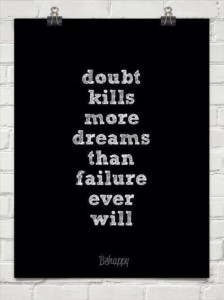I was pleased to learn upon answering the call that it was an enthusiastic young gentleman interested in opening a float center. I had heard there was a gentleman interested in opening a float center in Kentucky and I couldn’t wait to hear his accent. The good news was he did not disappoint. The great news was that we talked for about an hour and had a great conversation ranging from his burning desire to open a float center, to paleo diets. It was a real pleasure and I can’t wait to talk to him again.

Based on our discussion he said, "so... money is the biggest hurdle to opening my business". It was a statement, not a question, and it was certainly not the message I had intended to give. Our conversation had naturally led to fundraising and all the possibilities and hurdles associated with it. First you’ve got family, then friends, then friends of friends. There are angel investors, business scholarships and bank loans. More recently there is the option of crowdsourcing your money (without needing to pay it back) through sites such as Kickstarter. There are even business association meetings that get together specifically to educate entrepreneurs on how to fundraise. Despite all of this, he felt that fundraising was the biggest hurdle to opening his float center.
He felt that he could get a portion of the necessary funds from immediate and extended family, but was concerned that the idea of opening a float center in Kentucky would be considered too crazy; that there would be difficulty acquiring the rest of the funds to open his center. While things may look difficult, there is hope. Starting a small business is a journey, and money can sometimes appear to be an incredibly steep hill along that path, but it doesn’t have to be.
The key component that I believe my new friend was missing is that most people are never going to get to the point of fundraising. The biggest hurdle is in fact motivation; finding that drive and focus to develop a solid business plan that will bring you to the eventual point of fundraising. Potential entrepreneurs see fundraising in their future and lose motivation; becoming paralyzed when there are earlier steps to be taken that are of more immediate value. The steps required to build a business plan will free you up to gain forward momentum, while you work towards making your dream business a reality.
If you have the inspiration and motivation to complete your business plan, you will have created something that will inspire people. Taking a look at your finished business plan will inspire confidence in yourself and will also help build potential investors’ confidence in you. Because you already know your business inside and out, you will already be an expert in the field. Your knowledge, coupled with your excitement, will breathe energy into any conversation you have about your future business. In fact, you will be a different person than you were before you started working on your business plan.
The journey towards starting your business will look much different once you have a business plan in hand. Better yet, you will know that it can be an enjoyable part of your journey, not something to be feared.
Once Sandra and I had a business plan to show people, potential investors began to pop up that we had no idea existed. We had an infectious energy that created a buzz within our small social network, and discovered that this exciting endeavor was something that others wanted to be a part of. This was due to the fact that we had a single focus for about six months that resulted in researching the float industry; molding that information into the shape of how we wanted our center to be; and finally filtering it into our business plan.
In summary, the biggest hurdle is in your mind. To see projects and goals as insurmountable is human, but your passion coupled with the ability to break down a project into smaller pieces (in this case, the pieces that make up your business plan) will eventually bring you confidently to a goal that before seemed impossible.
